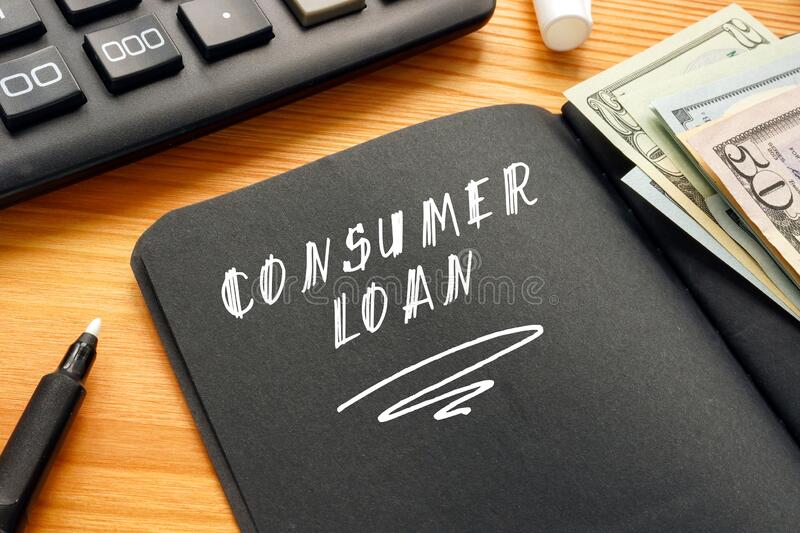Have you ever found yourself in a situation where money was tight, yet you needed some extra funds to cover an unexpected expense? Taking out a consumer loan might be the solution that you need. A consumer loan can provide quick financial assistance when life throws curveballs at us. While it is important to consider the risks associated with taking out any kind of loan, many advantages come with it as well. In this article, we will explore the advantages of taking out a consumer loan and why it may be beneficial for your financial health.
What Is A Consumer Loan?
A consumer loan is a type of loan that can be used for any personal or household purpose. The funds from the loan are typically provided by financial institutions, such as banks, credit unions, and online lenders. Consumer loans are generally secured or unsecured and are usually taken out to cover expenses such as home repairs, medical bills, vacations, or other large purchases. Generally speaking, consumer loans have higher interest rates than mortgages or car loans but offer more flexible repayment terms. Depending on the lender and the borrower’s creditworthiness, loan terms may last anywhere between one month to several years with payments made either monthly or bi-weekly. Additionally, some lenders may charge origination fees and/or require a credit check before providing the funds.
Consumer loans provide a great way for individuals to cover large expenses and manage their financial obligations. With competitive repayment terms, flexible payment schedules, and competitive interest rates, consumer loans can be a powerful tool for anyone looking to make a major purchase or cover unexpected costs. Now let’s explore the advantages of taking out a consumer loan!

Advantages Of Taking Out A Consumer Loan
Consumer loans can provide several advantages to individuals looking to make a major purchase or cover unexpected costs. With consumer loans, borrowers can enjoy flexible repayment terms that allow them to easily manage their loan payments over an extended period. Additionally, consumer loans often have competitive interest rates, which means the borrower will pay less overall for the cost of the loan. Furthermore, consumer loans can be used for a variety of different purposes including home improvement projects, medical expenses, vacations, and more. Lastly, taking out a consumer loan can help build credit if the borrower pays on time and in full each month as this activity is noted on their credit report.
In conclusion, taking out a consumer loan is an excellent way to finance large purchases and manage one’s financial obligations. With competitive interest rates and flexible repayment terms available from lenders nationwide, consumers should consider all their options before deciding on taking out a loan.
Reasons To Take Out a Consumer Loan
Taking out a forbrukslån can be an excellent way to finance major purchases or cover unexpected expenses. Consumer loans offer flexible payment terms, competitive interest rates, and the potential to build credit if the borrower pays on time and in full each month. Additionally, consumer loans are available from a variety of lenders nationwide, giving borrowers multiple options to choose from when selecting their loan terms and repayment schedule. Finally, consumer loans can be used for a range of purposes such as home improvement projects, medical expenses, vacations, and more. Taking out a consumer loan is an important decision that should be considered carefully – however it can provide long-term financial benefits when done correctly.
Overall, consumer loans can be an excellent way to help you achieve financial freedom and reach your goals. When done responsibly, taking out a consumer loan can provide many benefits that outweigh the risks. Now that you know more about consumer loans, it’s time to learn how you can use them to consolidate your debt and get back on track with your finances.
Consolidate Debt
Debt consolidation is a useful strategy for those looking to pay off their debt in an efficient and organized manner. By consolidating all of your debts into one loan, you can reduce the amount of interest you pay and make one monthly payment instead of multiple payments to different creditors. This makes budgeting easier and allows for a more predictable cash flow. Additionally, taking out a consumer loan with a lower interest rate than what you are currently paying on your existing debts can help save money in the long run. Lastly, consolidating your debt can also improve your credit score by reducing the number and amount of outstanding debts that appear on your credit report. By having less debt, lenders may see you as a more reliable borrower and be willing to offer more competitive rates on future loans or lines of credit. Ultimately, debt consolidation is an effective way to simplify your financial situation while saving money in the process.
Build Credit Score
Building a good credit score is an important step in establishing financial stability. A credit score is a numerical representation of your ability to pay back debt, and lenders use this as a tool to assess the risk associated with lending you money. While various factors make up your credit score, having a positive payment history is one of the most significant. Making timely payments on consumer loans, such as auto loans or student loans, can help build your credit score over time. Additionally, using credit cards responsibly – meaning only spending what you can afford to pay back and paying off any balances in full each month – will also help boost your credit score. Regularly checking your credit report and making sure there are no inaccuracies or errors is another way to ensure good standing with creditors and maintain a positive credit score. With consistent effort and dedication to managing your finances responsibly, you can increase your chances of obtaining favorable loan terms in the future.
Increase Purchasing Power
Taking out a consumer loan is an effective way to increase purchasing power. This type of loan allows you to borrow money from a financial institution to purchase items or services that may otherwise be out of reach due to budget constraints. Consumer loans can be secured or unsecured, meaning the borrower must either provide collateral for the loan or agree to pay a higher interest rate as security for the lender. Additionally, there are several types of consumer loans available such as auto loans, home improvement loans, and student loans. Various factors must be considered when taking out a loan such as credit score, monthly payments, origination fees, and the repayment period. Before applying for any type of loan it is important to understand the terms and conditions associated with it to ensure that you can meet the repayment requirements on time. Taking out a consumer loan can help individuals increase their purchasing power by providing access to necessary funds to make purchases they otherwise would not have been able to afford.
Get Financial Assistance For Emergencies
Getting financial assistance for emergencies can be difficult, but there are options available. Taking out a personal loan is one way to get the money needed to address emergencies quickly. Personal loans can be obtained from banks, credit unions, and online lenders. Most of these institutions require a credit check and some may also require collateral to secure the loan. It is important to shop around and compare different lenders to find the best interest rate and repayment terms for your situation. Additionally, special programs such as social security income, tax credits, and federal student loans may also provide financial assistance for emergencies. Lastly, utilizing credit cards or lines of credit can help provide access to funds during an emergency, although it is important to remember that high-interest rates and fees may apply if payments are not made on time. Financial assistance for emergencies can be accessed by researching all available options to find the best solution for your particular circumstances.

Conclusion
In conclusion, taking out a personal loan is one of the most viable options for obtaining financial assistance during an emergency. Depending on the lender, interest rates and repayment terms may be flexible. Additionally, other types of financial assistance such as social security income, tax credits, and federal student loans may also provide relief in certain circumstances. Lastly, utilizing credit cards or lines of credit can help provide access to funds during an emergency but it is important to remember that high-interest rates and fees may apply if payments are not made on time. Ultimately, understanding the advantages and disadvantages of each option can help individuals make informed decisions about how best to proceed with their financial needs.

